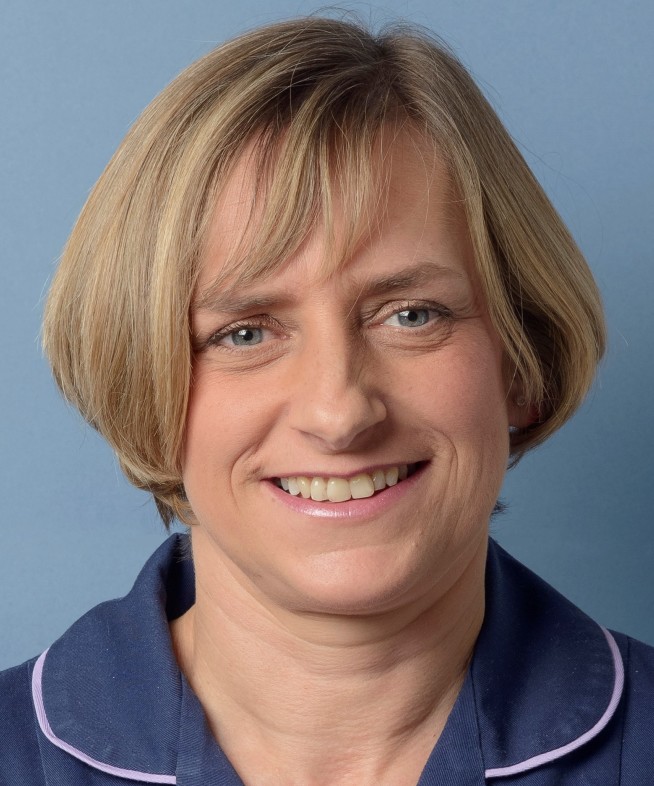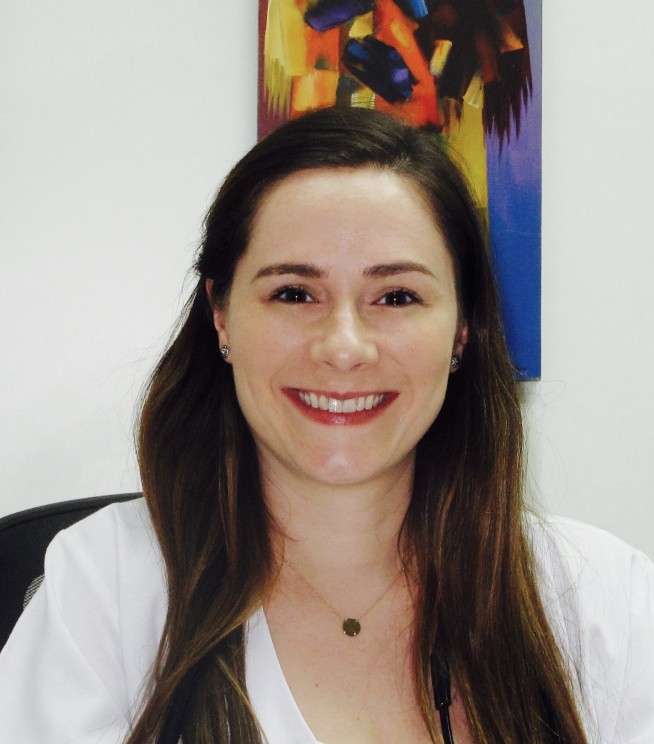Welcoming Allergy to the National Heart and Lung Institute

The National Heart and Lung Institute (NHLI) is proud to offer a new postgraduate taught programme this year, MSc Allergy.
The programme which is offered as a postgraduate certificate, diploma or a full MSc allows students to develop advanced knowledge and practical skills to optimally diagnose and manage allergic diseases at all ages.
"I am delighted to become part of the NHLI education family. NHLI has an outstanding international reputation in research and teaching in its field" Dr Marta Vazquez-Ortiz Programme Director
The programme was previously housed under the Department of Infectious Diseases but moved across to NHLI this year to join MSc Cardiovascular and Respiratory Healthcare, MSc Genes, Drugs and Stem Cells, MSc Genomic Medicine and MSc Medical Ultrasound. The programme will be welcoming its first cohort to NHLI in October this year at the St Mary’s Medical School Campus, in the centre of London.
Dr Marta Vazquez-Ortiz, Senior Clinical Lecturer and the programme director welcomes the move. "As the lead of the Allergy postgraduate programme at Imperial, I am delighted to become part of the NHLI education family. NHLI has an outstanding international reputation in research and teaching in its field. This includes the core faculty of our programme, who are amongst the world's leading researchers in Allergy. NHLI is providing our programme with privileged infrastructure and support that will greatly benefit our students going forward."
To understand more about the programme and to hear how past students found their time on the course, we got in touch with some of the MSc’s graduates. Silvia Riggioni and Rebecca Batt tell us about their experiences on the programme.
Why did you choose to study MSc Allergy?
Silvia - I was looking for an academic program to complement my knowledge on allergic diseases. I am a dermatologist and during the PG Certificate and MSc I was working full time, so the flexibility of the course allowed me to keep my job and travel to the UK for short periods to attend lessons.
Rebecca - I was beginning my career in allergy and I wanted to increase my knowledge and confidence in managing all aspects of the disease including food allergy, asthma, rhinitis and eczema. The foundation year gave me a firm understanding of immunology and the basic mechanisms of allergy and how cells communicate. The second year was more in-depth and covered aspects of epigenetics and early life exposure and current theories into why allergies develop. The final year gave me the opportunity to put research into practice and I was able to implement an original study in how allergies are managed in schools. I was hoping to start running nurse-led clinics and I needed to have a qualification to enable me to progress my career into being an independent practitioner.
What was your favourite part of the course?
Silvia – Even though I am a dermatologist, my favourite part of the programme was the 'Food Allergy Section', particularly the lectures given by the dieticians. Their knowledge and approach towards treating patients was remarkable.

Rebecca - This is a difficult one to answer as there are so many positive memories, but being able to implement my own research study was one of my highlights. This was incredibly rewarding and I felt a huge sense of achievement when this was completed.
What were the most challenging parts?
Rebecca - When I did my nurse training, we were not taught immunology in any depth and I really had to start from the beginning so for me, getting through the first exam was the most challenging part of the course. After that it was about being disciplined to juggle full-time work and study and still keep on top of all the reading and learning.
Silvia - Probably the 'Basic Immunology Section' at the beginning of the programme. It is sometimes very labour intensive to return to the basics.
What was best thing about studying in London?
Silvia - There was no one best thing, the entire experience was memorable. I found the programme challenging, yet rewarding, and excellent for providing an overall understanding of Allergy. The faculty members were all top scientific speakers, very interested in their respective fields and classes were a delight. Studying in London had always been a dream of mine. Attending Imperial was a great academic achievement.
Rebecca - I live and work in London so it suited me to study as near as possible to home.
What have you been doing since your MSc?
Rebecca - Since my MSc I have continued to develop my career in allergy and have stayed within this fascinating speciality. I continued to work as a Clinical Nurse Specialist and I am now an Advanced Nurse Practitioner in Paediatric Allergy at the Evelina London Children’s Hospital. I lecture for Allergy UK as well as at the London South Bank University on the ANP pathways and I help run the practical sessions on the MSc course at Imperial. I am also a nurse prescriber so I am able to run nurse led clinics independently and I am the senior clinical nurse for the allergy nursing team at the Evelina. I am also a course director for the Allergy Academy based at King’s College London.

Silvia - During the last year and a half of the course I moved to Barcelona and took part in a 3-year Clinical Fellowship at Hospital Clínic de Barcelona, under the guidance of Antonio Valero MD, PhD. After completing the fellowship, I took and passed the European Examination in Allergology and Clinical Immunology (EAACI). Later I returned to my home country, Costa Rica. I currently work as an attending physician in an Allergy and Dermatology Department.
Did you have any issues sourcing funding for your MSc? Who was your funding from?
Rebecca - I was able to get funding for the first year with a nurse’s development award from my Trust, which at the time was King’s College Hospital. I was able to secure small bursaries and sponsorships and add them together for the final two years’ fees.
Silvia - I had no issues sourcing funding. For the first two years the tuitions were self-funded and for the third year, I applied for a student loan from a government agency in my home country, Costa Rica.
Is there anything you would recommend to students about to start the course?
Silvia - Enjoy every single lesson, in the long run everything adds up and gives you a good solid basis to move forward.
Rebecca - If you don’t have a basic understanding of immunology, then I would recommend reading a few chapters of an allergy textbook or an immunology for beginners guide before the course. If I had done this, I may not have been so lost in the early lectures! I had to do a lot of extra reading at the beginning to learn the basics before I could put all the immunological aspects together.
How would you sum up your time on the course in one word?
Silvia - Outstanding
Rebecca – Inspiring
For more information on the programme, visit the MSc Allergy programme webpage or contact Jen Haley, the programme administrator by email at allergypgs@imperial.ac.uk
To hear from more of our MSc Allergy students, visit Meet our students.
Article text (excluding photos or graphics) © Imperial College London.
Photos and graphics subject to third party copyright used with permission or © Imperial College London.
Reporter
Miss Lizzie Lomer
National Heart & Lung Institute